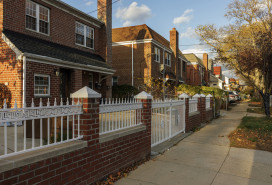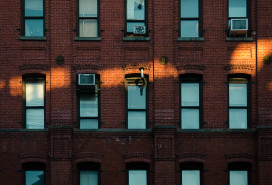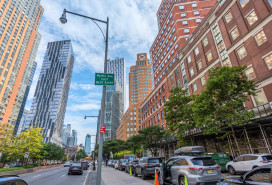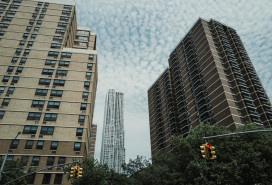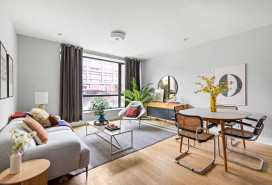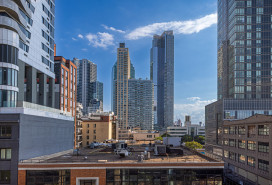The Board Room: The 12-step alteration agreement

In a co-op or condo, one person’s new Waterworks bathroom can become another’s water-logged ceiling nightmare. But that's only one reason why it’s critical for boards to have an up-to-the-minute alteration agreement detailing the scope of the work permitted, the way it can be performed, and the owner’s obligations to repair and maintain their new-and-improved apartment.
“When alteration agreements aren’t comprehensive enough, they can result in unbridled work inside a unit, damage to the building’s systems, a negative effect on other owners' quality of life, and expensive litigation that could have been avoided,” says co-op and condo lawyer Robert Braverman of Braverman & Associates.
Just as a renovation can become dated in a few years, the definition of “comprehensive” is ever-evolving. If your building hasn’t updated its alteration agreement in awhile, it may be time.
“Hot button issues now include making sure that work is completed on time and that the work matches the approved drawings,” says Braverman. “There’s also an emphasis on making sure that any maintenance or repair obligations are properly documented, so that they pass on to future owners or shareholders.”
While your alteration agreement should be tailored to meet the needs of your building, there are certain basic components to consider. Here are a dozen Braverman identifies as among the most important:
- Indemnification: The alteration agreement should require that the owner performing the alteration indemnify the co-op/condominium and its shareholders/unit owners from any and all claims arising from or relating to the alteration.
- Proof of Insurance: The insurance certificates provided by the contractor and any subcontractor working in the building should name the building, its shareholders or unit owners, and the managing agent. For a small job, like kitchen cabinet re-facing, a $1 million base policy and a $5 million umbrella would be sufficient. For a gut rehab of a high-end apartment, a $2 million base policy and a $20-25 million umbrella is sufficient. Make sure the insurance covers only the project at hand; many contractors share a certificate among projects, potentially reducing the amount that can be recovered if your building needs it.
- Security deposit: When problems arise during a renovation, a co-op or condo board may need to call in an architect or engineer and charge it to the resident. To ensure that these fees are paid back quickly, require a security deposit in the range of $2,500-$10,000, to be replenished as it’s drawn down.
- Identification: Professional thieves and random predators take advantage of the presence of a construction crew to gain access to a building. For security reasons, contractors and subcontractors should be required to wear uniforms displaying the contractor’s logo and be required to show some form of ID to check into the building.
- Work hours: To protect other residents from being unduly disturbed, consider limiting noisy work to 10 am – 4:30pm, “non-noisy work” from 8:30 am to 5:00 pm, weekdays only, with no work of any type permitted on legal or religious holidays.
- Time limit: You don’t want a contractor taking on more jobs than he can finish, and wind up spending six months finishing a job in your building instead of three. Most alteration agreements limit construction to 120 calendar days (not business days), with shareholders charged $150-200 for each day exceeding that time limit.
- Right to stop: The alteration agreement should allow the board or managing agent to stop the job at any time without incurring any liability, if they reasonably believe something is amiss.
- Hazardous material removal guidelines: Clearly specify how hazardous materials like lead based paints and asbestos will be removed, and require that the contractor use licensed abatement professionals.
- Gas line don't-touch policy: A gas line must be turned off in order to move it, and before Con Ed will turn it back on, they perform a pressure test on it. Almost invariably, Con Ed finds that the line is leaking and orders it shut down—impacting every apartment that shares the gas riser—until it is repaired and the test is met. That could add up to a month or more of multifamily misery.
- ‘Wet-over-dry’ renovations: A rule prohibiting wet areas like bathrooms and kitchens from being expanded or moved above dry areas like bedrooms and living areas will prevent a lot of future heartache and expense when the almost inevitable leaks occur.
- Future maintenance and repair obligations: The resident and subsequent owners are liable for any maintenance or repair issues related to a changed condition in the apartment.
- Conformance to plans: The final work must conform to approved drawings and plans.
Robert Braverman, Esq., is the managing partner of Braverman & Associates, specializing in the representation of New York City co-op and condominium boards. Read more of his legal advice in The Board Room.

